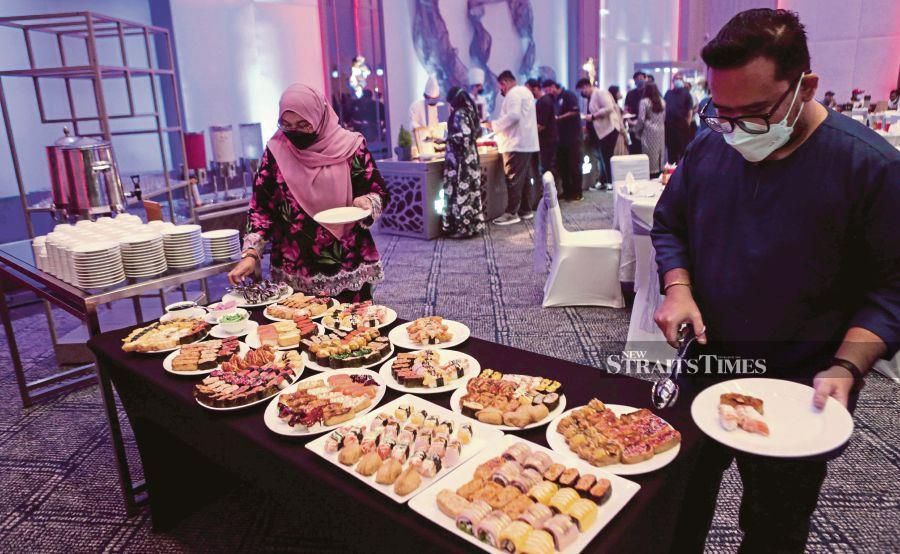
KUALA LUMPUR: Diners have noticed that prices for buka puasa buffets in hotels have gone up this year.
Malaysian Association of Hotels (MAH) chief executive officer Yap Lip Seng said the scenario was expected as the country transitioned into endemicity, as the cost of raw ingredients had increased yet hotel operators strived to meet the same quality as before.
"Setting a buffet package for Ramadan is a tedious process. There are many key factors to be considered, including cost for food (raw ingredients) and manpower.
"As we are well aware, the price of most key raw ingredients for food, especially traditional delicacies, have increased."Some hotels offer premium products in their spread, so naturally they have to be set at a higher price," he told the New Straits Times.
Generally, Yap said, the prices were also driven by market demands and the hotels' target diners.
It was reported on Wednesday that the public continued to book tables for Ramadan buka puasa spreads despite the exorbitant prices.
Hotels, including five-star chains, have reported that there had been a 20 per cent increase in Ramadan buka puasa buffet bookings.
A quick check showed that prices of hotel buka puasa buffets range from RM70 to RM500 per person (for adults and kids) this year, compared with prices last year, which were between RM50 and RM300.
Consumers Association of Penang (CAP) president Mohideen Abdul Kader reminded people to avoid food wastage and for Ramadan to be observed in moderation.

Even the prices of Ramadan buffets, he said, should not be seen as promoting conspicuous consumption.
"Fasting is not for indulgent feasting. It is about being thankful for small blessings. Islam enjoins its followers to avoid gluttony, food wastage, and extravagance.
"Imagine spending over RM100 per person for one meal at a lavish hotel. How much can one eat anyway?
"We can't even pack our leftovers, which will contribute more to food wastage, defeating the purpose of fasting in Ramadan entirely," he said.
Mohideen referred to Solid Waste and Public Cleansing Corporation (SWCorp) reports published in 2016, where it was reported that some 200,000 tonnes of food went straight to rubbish bins every Ramadan.
"Some 200,000 tonnes of food could feed over 180 million people. Throwing away food is a sin, as it indirectly deprives the needy and our future generation.
"It also depletes resources and contributes to environmental degradation through the pollution of seas, rivers, and discharges of carbon dioxide, which contributes more to global warming," he said.
Mohideen said CAP would continue campaigning against food wastage, as well as discouraging the public from overindulging when breaking fast. - NST



No comments:
Post a Comment
Note: Only a member of this blog may post a comment.